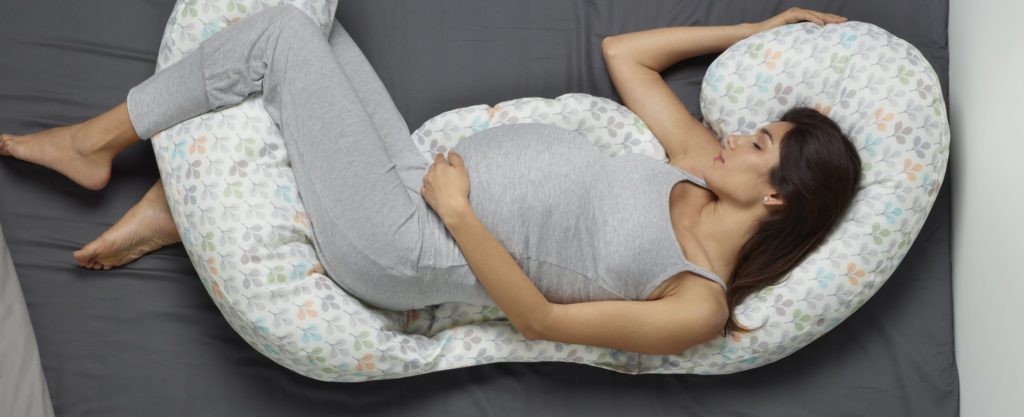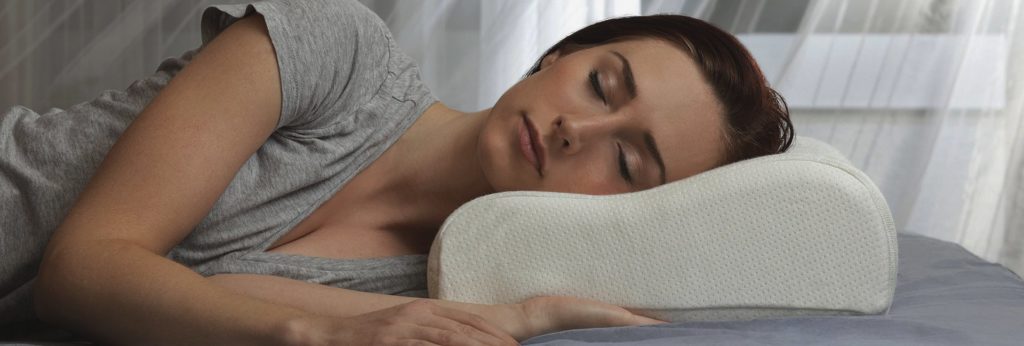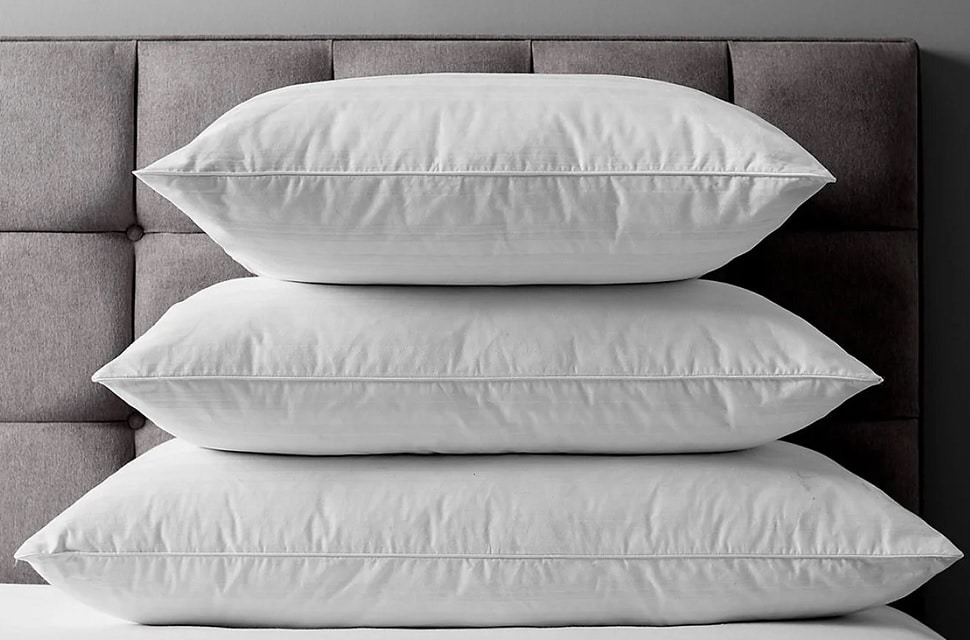

When was the last time you washed your pillow? Never? Like the rest of the textiles in our homes, pillows must be washed from time to time to rid them of dust, sweat, and oil deposits. Otherwise, your pillow will quickly turn into a broth culture!
To maintain your pillow and keep the bacteria and allergens away, you must wash it regularly. Although you may find it more practical to buy new ones, washing pillows is very simple. If they’re yellow or haven’t been washed in quite a time, in this article, you’ll find out how to wash pillows of different materials, whether manually or with a machine, and how to dry them.
Ideally, you should wash your pillow twice a year Trusted Source How to Wash Pillows | Sleep Foundation We highlight helpful suggestions for how to wash pillows, including feather, down, and memory foam varieties. www.sleepfoundation.org (once every six months). If you use a pillowcase or pillow protector and change or clean it very often (every two to three days), cleaning your pillow will have to be done less often since the pillowcase keeps it clean. Therefore, we recommend buying a pillow protector that can be easily washed. For example, the Utopia Bedding Pillow Protector is machine washable and tumble dryable.
While most materials can be hand-washed, not all can be washed with a machine or washed entirely as they are. That’s why we’ve provided step-by-step instructions on how to wash pillows in the machine and by hand, depending on the material type.
The video below explains why you should wash your pillows and gives general instructions on how to do it properly.
Cotton, polyester, down, and sofa pillows can be washed the same way – with a washing machine in a gentle wash cycle. Find out how!
If the pillow is in a protector or cover, remove it. Some pillows also have zippered covers that can be removed to wash them separately.
You can machine wash cotton and polyester pillows, including the down ones. Try washing them in pairs to balance the drum.
For normal washing, add a dose of your usual detergent (about 1 to 2 teaspoonfuls). If you want to whiten the pillows, add one part dishwasher powder, one part bleach, and half a part borax to the laundry.
Set your washing machine to hot water with two rinses. Meanwhile, if you’ve got one of the best organic pillows, you have to use cold water for the first wash. The materials haven’t been chemically treated. So, they may shrink in the machine.
We don’t recommend using a washer with an agitator for pillows with down material, for example.
You can add a few Washin’ Jax Laundry Agitators for more deep cleaning power. Then let the machine and the agitators do the work for you!
Adjust the dryer according to the type of pillows. If they are down, choose the air-dry option. If they are synthetic, set to low temperature.
Take two tennis balls and place them in clean white socks. Place them with the pillows to reshape them and dry them faster. Start your dryer!
When the cycle is complete, take the pillows out and run your hands over them to see if they’re still damp. Smell the pillows to see if they are still wet inside. If they aren’t quite dry, put them back in the dryer. Otherwise, they are clean and ready.
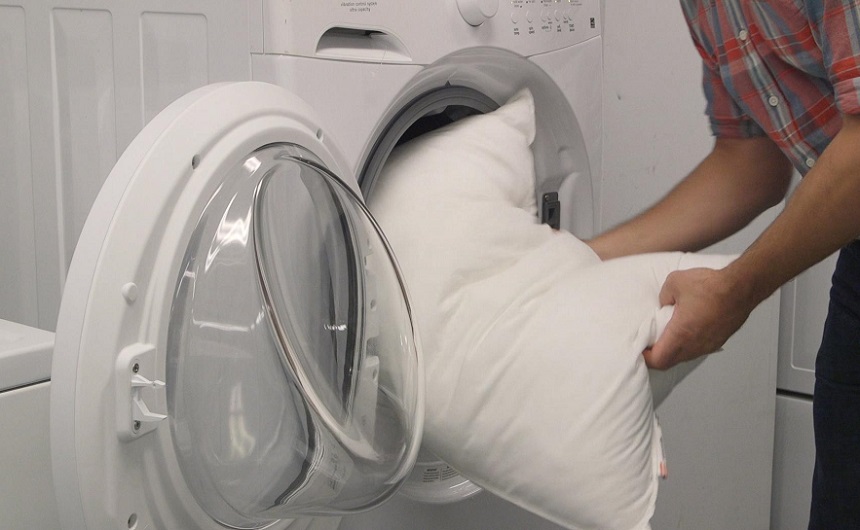 The best feather pillows provide cloud soft comfort every night. But washing them is a must and is different from other pillow types.
The best feather pillows provide cloud soft comfort every night. But washing them is a must and is different from other pillow types.
If it is in a protective padded zippered envelope, remove it from that envelope.
Don’t forget to inspect the seams. If the pillow is torn, you need to sew it up.
Doing this will balance the drum Trusted Source Washing Feather Pillows - How to Clean Feather Bed Pillows Heloise gives helpful advice on how to wash and dry feather pillows. www.goodhousekeeping.com . If they do not enter the drum, remove the air by pressing them tightly. Do not use a washing machine that opens from the top: the agitator will probably damage them. Go to a laundromat if you don’t have a front-opening machine.
Place your pillows upright if you must use a top-loading machine so they don’t get caught in the agitator.
Put it in the appropriate compartment. Do not use as much detergent as usual to avoid residue. Instead, opt for liquid detergent and avoid powdered ones. Too much detergent will accumulate more and form residues that can irritate the skin and cause allergies. The less soap you use, the less you'll need to rinse Trusted Source How to Wash Feather Pillows (with Pictures) - wikiHow Life Feather pillows can be soft and luxurious, but you need to take good care of them by washing them at least once a year. Washing will help kill any dust mites and bacteria. It will also clean off dust, dirt, sweat, and oils. This article… www.wikihow.life your pillows, which is good since they’re bulky and hard to rinse.
Use hot water, if possible. This will eliminate any moths that may have colonized your pillows. However, remember that hot water can damage the feathers. If this is a concern, use warm or cold water instead.
Eliminate as much moisture as possible. Feel free to run additional spin and rinse cycles. They will remove the excess soap. More spinning will rid your pillows of all moisture.
When it’s done washing, put your pillows between two terry towels. You can then press them without twisting them so as not to deform them. The dryer should not be used in this kind of situation. It would damage the feather.
It is better, if possible, to let your pillow dry outdoors in the sun to air them and avoid dust mites.
Don’t hang them on a wire with clothespins to prevent the feathers from bunching up. However, you can tap and turn them often so that the feathers dry evenly, and your pillows naturally fluff up.
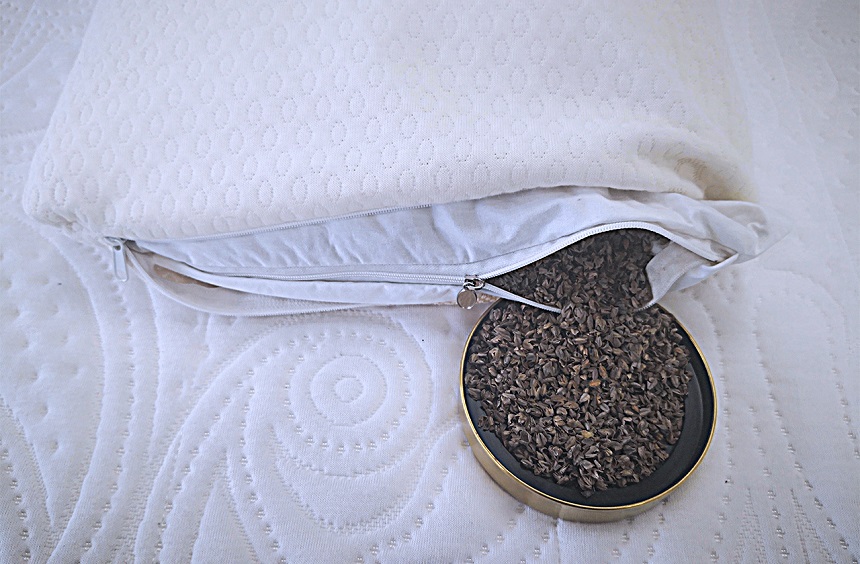 The buckwheat pillow, which can be kept for several years (even decades), may require a small annual wash, which involves cleaning the cover and airing the husks simultaneously. Note that the pods should never be washed; only the cover should be.
The buckwheat pillow, which can be kept for several years (even decades), may require a small annual wash, which involves cleaning the cover and airing the husks simultaneously. Note that the pods should never be washed; only the cover should be.
Here are the steps to clean your buckwheat pillow. It’s very simple!
Zip down your buckwheat pillow in front and empty it into a bucket. The pillow must be in the correct direction, i.e., the zipper towards the bag. There should not be a single buckwheat husk left inside the cover.
All buckwheat husks must be transferred to the collection bag or bucket.
If you wish, you can close the bag with a piece of string to keep the pods.
You can now wash the pillow cover at 60°F in the washing machine. The cotton cover will regain its shine, and your buckwheat pillow will be like new once the pods are reintroduced inside.
You can also take advantage of this operation to aerate your buckwheat husks by leaving them for a few hours in the open air in a container. This will release the accumulated moisture.
You should air the husks about once a year.
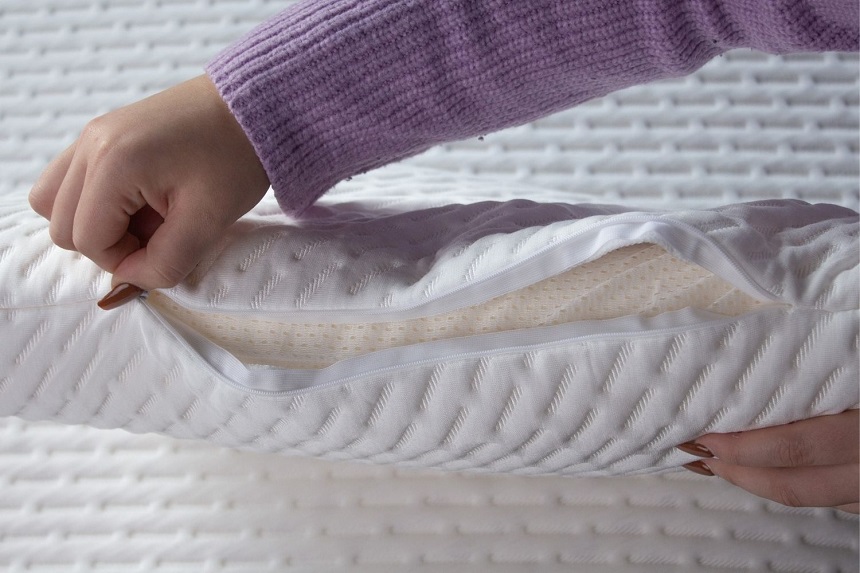 If you’re looking to buy the best memory foam pillow, you should also think about the maintenance aspect. Foam pillows, including latex pillows, are not washed like other materials such as polyester. But here’s how it’s done.
If you’re looking to buy the best memory foam pillow, you should also think about the maintenance aspect. Foam pillows, including latex pillows, are not washed like other materials such as polyester. But here’s how it’s done.
If your pillows have pillowcases or covers, remove them before washing. Most of these pillows have zippered covers that must be removed. You can wash them separately in the washing machine.
Washing machines are too harsh for foam (memory foam and latex foams) which is fragile. So pillows made with this material should be washed by hand. Fill the tub or sink with lukewarm water. The water should cover up the pillow.
Add a tablespoon of detergent to the water for every pillow. Shake the water with your hand to mix and lather.
Place the pillows in the machine and move them through the water to work the detergent through. Massage and crush the pillow to release dirt and deeply refresh it.
Place each pillow under running water. Rinse off the soap and check to see if any suds remain.
Heat can destroy the foam, causing it to flatten. Therefore, don’t put memory foam or latex pillows in a dryer. Instead, let it air-dry in the open air or under the sun.
Foam is likely to retain water as the material feels like a sponge. Make sure there is no water or moisture left before putting it back in your bed, as it may start to rot.
Machine washing is adequate for throws and decorative pillows, provided you program a delicate cycle. It is preferable, when possible, to remove the covers. In this specific case, you can add a few balls to the drum of the machine so that your cushions maintain a plump shape.
Steam washing is also ideal for delicate textiles or bulky items. You can use a device like a steamer to clean quickly without damaging it! Furthermore, steam cleaning helps tighten the fibers – the textiles are ironed carefully to give them a new lease of life.
Hand washing or machine washing doesn’t depend on you. Some materials cannot be machine washed, and some only require soft or delicate washing in the machine. Foam materials such as memory foam and latex should not be washed in the machine Trusted Source How to Wash Latex and Memory Foam Bed Pillows Both latex and memory foam pillows should be cleaned regularly to improve sleep and prevent nighttime allergies from keeping you awake. www.thespruce.com but rather spot-cleaned or carefully washed by hand.
Polyester pillows should be washed in a delicate wash cycle. As for buckwheat pillows, only the covers can be washed in the machine after the husks have been removed and placed in a bucket. Cotton, down, and feather pillows can be washed in the machine with warm water and a gentle wash cycle.
Having seen how to wash pillows, now you know it’s not so hard to do. Pillows should be washed twice a year to remove sweat, oil, dander, and dust buildup.
But you should occasionally check the pillows to know whether you have to change them. Suppose you bend it halfway, and it doesn’t spring back; it needs to be changed. If it unfolds on its own, it’s still good. You only need to wash it. However, on average, you must replace your pillows once every two years.
